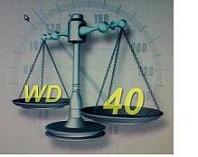This is plagiarized. I am not the author.
The ownership of machineguns was first regulated at the federal level by the National Firearms Act of 1934. This act establishes the need for the approval of the Treasury to transfer or own a machine gun along with the payment of a $200.00 tax each time a weapon is transferred to or among individual collectors. In addition the weapons are registered in a federal database. These procedures remain in effect today as part of the federal tax code though they are administered by the Bureau Of Alcohol, Tobacco, Firearms and Explosives.
A second federal statute, The Firearms Owners' Protection Act of May 19, 1986, created two broad classes of automatic weapons. Guns manufactured and registered prior to the acts date which can be owned by civilians. These are called “transferable guns”. Those manufactured on or following the acts date are restricted to manufacturers, dealers and government entities. There are additional restrictions on dealers and manufactures which are not detailed here.
Certain states have additional requirements on machine gun ownership over and above the federal regulations noted above. Some states ban ownership totally. In Massachusetts, for instance, an additional state License To Possess A Machine Gun granted by the local police department is required. To qualify you must be a certified firearms instructor or bonafied collector of firearms.
The first step in ownership is to locate the transferable firearm of your choice via a qualified dealer in your state. You may then begin the transfer process but may not take possession of the firearm until the transfer is approved. The entire process can take a few months to complete.
The transfer process involves submitting an application with photographs and fingerprints signed by your local Chief Law Enforcement Officer to the Bureau Of Alcohol, Tobacco, Firearms and Explosives along with a $200.00 transfer tax payment. Upon completion of a federal background check the Bureau will approve or deny the application. If approved a copy of the application is returned to you with the required tax stamp attached. At this point you may take possession of the firearm from the dealer.
[/plagiarism]
Now that we've cleared up that irrelevant issue, I direct your attention to the fact that it is semiautomatic weapons that are the focus of the proposed legislation.
The God Damned Gun Control Thread
Re: The God Damned Gun Control Thread
I have been avoiding this thread but I noticed other people posting stories about how things have affected them so I thought I might throw in my 2 cents. I mean no disrespect to anybody and I hope that I do not offend. I was at the Safeway in Tucson when Gabby Giffords was shot. That was my neighborhood Safeway growing up and on that particular day I stopped in on my way to work to pick up deodorant because I had run out. I stood next to Jared Loughner in line for a solid 5 minutes straight. I have a receipt timestamped at 10:08 when the first 911 calls came at 10:10. I was in the parking lot about 100 feet away when he opened fire. The FBI came to my house a couple of weeks after to ask me what, if anything, I remembered about him because they had me on security tape standing next to him for so long. Loughner was taken down after unloading an extended magazine clip while he was trying to reload. This personal experience leads me to believe that if he was forced to reload sooner, he may not have killed and injured so many people. Say what you want about how with practice, reloading is not an issue, but the fact is that sometimes it IS an issue. I do not believe anybody has a right to an extended clip. Nowhere in the constitution does it say anything about it. I agree that guns should not be severely limited but I think common sense gun control is an absolute must.

-

Bailey - SWBF2 Admin
- Posts: 369
- Joined: Fri Sep 18, 2009 8:18 am
- Xfire: Bailey1020
Re: The God Damned Gun Control Thread
Still need to get the wack-jobs off the streets. Extended mags or not.
-

WD-40 - SWBF2 Admin
- Posts: 4537
- Joined: Mon May 17, 2010 10:12 pm
- Location: Likely on some crappy Hotel internet connection
- Xfire: faststart0777
Re: The God Damned Gun Control Thread
Bailey wrote:I have been avoiding this thread but I noticed other people posting stories about how things have affected them so I thought I might throw in my 2 cents. I mean no disrespect to anybody and I hope that I do not offend. I was at the Safeway in Tucson when Gabby Giffords was shot. That was my neighborhood Safeway growing up and on that particular day I stopped in on my way to work to pick up deodorant because I had run out. I stood next to Jared Loughner in line for a solid 5 minutes straight. I have a receipt timestamped at 10:08 when the first 911 calls came at 10:10. I was in the parking lot about 100 feet away when he opened fire. The FBI came to my house a couple of weeks after to ask me what, if anything, I remembered about him because they had me on security tape standing next to him for so long. Loughner was taken down after unloading an extended magazine clip while he was trying to reload. This personal experience leads me to believe that if he was forced to reload sooner, he may not have killed and injured so many people. Say what you want about how with practice, reloading is not an issue, but the fact is that sometimes it IS an issue. I do not believe anybody has a right to an extended clip. Nowhere in the constitution does it say anything about it. I agree that guns should not be severely limited but I think common sense gun control is an absolute must.
I didn't know about the Jared incident... hell, this world is full of maniacs
-

CommanderOtto - SWBF2 Admin
- Posts: 2572
- Joined: Wed Jun 13, 2012 10:30 pm
- Location: A kitchen
Re: The God Damned Gun Control Thread
CommanderOttoe wrote:I didn't know about the Jared incident... hell, this world is full of maniacs
Seriously? You have been chiming in on this topic since . . . whenever and you didn't know about this? Now you think this world is full of maniacs? I really hate jumping on ya, but that is just dumb, and you are making my head hurt.
Bailey, thank you for your insight and real life experience.

-

Duel of Fates - SWBF2 Admin
- Posts: 2812
- Joined: Wed Aug 19, 2009 9:21 pm
- Location: I am here, and there.
- Xfire: virago777
Re: The God Damned Gun Control Thread
the best thing to do is to stay out... just like everyone else.
Last edited by CommanderOtto on Mon Feb 18, 2013 4:53 pm, edited 2 times in total.
-

CommanderOtto - SWBF2 Admin
- Posts: 2572
- Joined: Wed Jun 13, 2012 10:30 pm
- Location: A kitchen
Re: The God Damned Gun Control Thread
CommanderOtto wrote:Duel of Fates wrote:CommanderOttoe wrote:I didn't know about the Jared incident... hell, this world is full of maniacs
Seriously? You have been chiming in on this topic since . . . whenever and you didn't know about this? Now you think this world is full of maniacs? I really hate jumping on ya, but that is just dumb, and you are making my head hurt.
Bailey, thank you for your insight and real life experience.
what's the problem, you know I just arrived here in the states... It's not like everytime someone kills people in the U.S it is shown worldwide.
Still making my head hurt. When did you get here? Do you watch any news of anykind? Read the paper? Talk to people? Cuz this has been going on for quite some time. And if you are not up to date with current events, how can you base an opinion, and expect others take you seriously if you have no idea what you are talking about?
Need to stop now, have a migraine.

-

Duel of Fates - SWBF2 Admin
- Posts: 2812
- Joined: Wed Aug 19, 2009 9:21 pm
- Location: I am here, and there.
- Xfire: virago777
Re: The God Damned Gun Control Thread
.
Last edited by CommanderOtto on Mon Feb 18, 2013 4:53 pm, edited 1 time in total.
-

CommanderOtto - SWBF2 Admin
- Posts: 2572
- Joined: Wed Jun 13, 2012 10:30 pm
- Location: A kitchen
Re: The God Damned Gun Control Thread
CommanderOtto wrote:Duel of Fates wrote:CommanderOttoe wrote:I didn't know about the Jared incident... hell, this world is full of maniacs
Seriously? You have been chiming in on this topic since . . . whenever and you didn't know about this? Now you think this world is full of maniacs? I really hate jumping on ya, but that is just dumb, and you are making my head hurt.
Bailey, thank you for your insight and real life experience.
duel what's the problem, you know I just arrived here in the states... It's not like everytime someone kills people in the U.S it is shown worldwide. Just wanted to say something without actually continuing to get involved in this thread. yeah, I read a star wars forum thread about gun control and that makes me an expert in the history of mass shootings?
Are you here legally? If not.....


-

mrjamwin - SWBF2 Admin
- Posts: 1087
- Joined: Fri Sep 04, 2009 2:27 am
Return to Non-Game Discussions
Who is online
Users browsing this forum: No registered users and 8 guests
